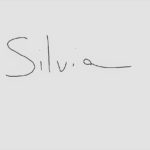This post is part of CTC’s Reflections from our Clinicians series. These series consists of blogs written in the first person narrative, meant to reflect our values of independence while ensuring a broader diversity of topics, styles and opinions.
New York, April 19, 2015
This weekend while attending the New York City Anarchist Book Fair I was asked whether or not I am an anarchist. As always my reply was no, however the more the person, who ironically was also not an anarchist, talked about things such as the effectiveness of cooperatives, and human nature, the more I begun thinking how much I indeed hold in common with the anarchist tenants.
From my understanding anarchism is not a dogmatic system, as someone very dear to me often reminds me. Rather anarchism is a practice based around a set of ethical positions and principles – the rejection of hierarchy and oppression, and the embrace of solidary, mutual aid, and non-coercive relationships. As David Graeber states:
At their very simplest, anarchist beliefs turn on to two elementary assumptions. The first is that human beings are, under ordinary circumstances, about as reasonable and decent as they are allowed to be, and can organize themselves and their communities without needing to be told how. The second is that power corrupts. Most of all, anarchism is just a matter of having the courage to take the simple principles of common decency that we all live by, and to follow them through to their logical conclusions. Odd though this may seem, in most important ways you are probably already an anarchist — you just don’t realize it.
I agree with these ideals of anarchism, yet I get stuck at the implementation of it all. Meaning, how would it work politically? Maybe that is not a fair question, yet it lingers on my mind.
Like my anarchist friends, I also oppose inequality and exploitation, reject a capitalist economy, and aim for a society that is free, diverse, healthy, and beautiful. I have some knowledge of Noam Chomsky, Peter Kropotkin, and Emma Goldman. And, I have witnessed the success of cooperatives – which many anarchists consider a promising feature of any post-capitalist society – but only in those instances where people truly care for each other and are genuinely interested in the community. I have also witnessed the total anarchy (pardon the pun) that can occur in those cooperatives and other collective ventures. And I also get impatient with the process of democratic decision-making, especially when things move so quickly in today’s world.
The more I sat with these thoughts the more I begun to realize perhaps whether or not I call myself an anarchist is not that relevant. Instead perhaps I can clarify my positon that is outside ideologies which carry names that incite knee jerk emotions, because we’ve been so indoctrinated for or against them.
As a psychotherapist I have listened to countless stories of pain, greed and the horrors of what humans can do to other humans. I have also seen the potential for change and witnessed the love, and compassion humans can show towards other humans. In fact, the more I work with people, the more I am convinced of our possibility for both good and evil. I think within every one of us we have the potential for destructiveness and hate, as well as love and collaboration. Yet, there are instincts, if I can call them that, that are cultivated based on the society and environment we grow-up in. In that sense the anarchists have a point, if we create more egalitarian relationships without coercive force, the more likely we are to be more compassionate and caring towards one another. Eric Fromm believed in this view of what he called the sane society, a society organized in small groups where people would work collaboratively, sharing control of their working conditions and the distribution of the fruits of their labor. Fromm believed that in this society people would be actualized and live to their fullest potential. But, unlike Fromm who believed that in such society violence and destructiveness would disappear, I, in line with the Kleinians, believe that those instincts will persist. Based on Klein’s theory, I believe, that through the sublimation of these impulses of violence and destruction, rather than disavowing/disowning them that we can repair and reconstruct.
Perhaps my experience as a psychotherapist over the years, has made me more of an anarchist that I am willing to admit. And if that means seeing the potential goodness in all of us, and caring for each other while aspiring towards non-coercive relationships then you can call me an anarchist any time.

